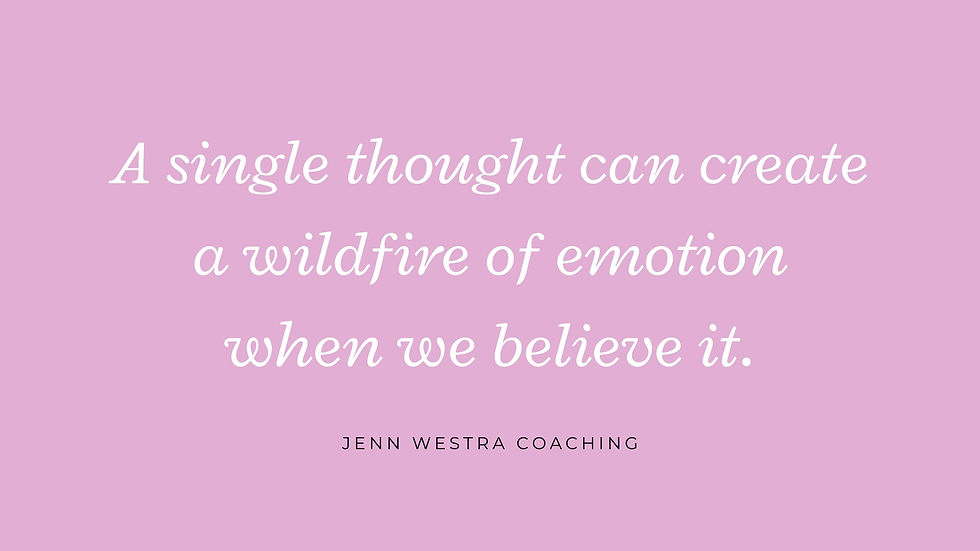Innocent Engagement: How We Get Pulled Into the Storm of Thought
- Aug 1, 2025
- 3 min read
Updated: Aug 31, 2025

Innocent Engagement: How We Get Pulled Into the Storm of Thought
We all do it. A thought comes through the mind—uninvited, often unnoticed—and before we realize what’s happened, we’ve latched on. We’ve built a narrative around it. We’ve felt it in our bodies. We’ve believed it as truth.
And then we wonder why we feel so overwhelmed, so tense, so hurt, so hopeless.
What’s easy to miss in those moments is that the whole experience began with a single thought. And that our engagement with it—our investment in it—was innocent.
We Don’t Mean to Suffer
Nobody wakes up thinking, Today I want to ride a spiral of emotional chaos. We don’t plan to create worst-case scenarios, relive old wounds, or imagine being judged. We don’t intend to scare or shame ourselves.
But when a thought floats into the mind—especially one charged with fear, doubt, or pain—it often feels so personal, so true, so ours that we can’t help but latch on. We believe it without question. We follow it down the rabbit hole.
And once we’re in it, the feeling intensifies. Emotions surge. The story gets louder. The evidence stacks up. And the whole thing starts to feel not just real, but inescapable.
But it’s not real in the way we think.
It’s a movie created by the mind, projected by thought, and fueled by our innocent engagement with it.
The Role of Innocence
There’s something deeply human and profoundly healing about recognizing that we’re not doing it on purpose. We don’t need to beat ourselves up for how reactive or emotional we’ve become. We’re not flawed for having spiraled into anxious, angry, or hopeless thinking.
We’re just innocently using the gift of thought in a way that’s momentarily painful.
Thought is neutral. It flows through. It’s part of the design. But it’s sticky when we’re unaware. And the more real it feels, the more real it seems.
But that’s not a sign that something is wrong with you. That’s a sign you’re human.
How Narrative Gets Built
When we engage with a thought, it doesn’t stay small. The mind wants to make sense of it, organize it, expand on it. A fleeting idea of “I’m not doing enough” becomes a whole narrative: I’m falling behind. I never follow through. People must think I’m lazy. I’ll never get anywhere.
One tiny ember of thought creates an emotional wildfire.
And again—we’re not doing this because we’re broken or dramatic. We’re doing it because we care. Because we’re sensitive. Because we’re trying to make sense of things. Because we haven’t yet seen that not every thought needs our attention.
But the moment we see the mechanism behind it, everything softens.
Noticing the Spiral as It Begins
What changes everything is the ability to notice thought as thought. To pause before building the story. To catch the flavor of a feeling and remember, “This is telling me about the quality of my thinking—not the quality of my life.”
That’s when space opens up.
You might still feel the emotion, but you’re not pulled into it in the same way.
You’re no longer convinced the whole story needs to be followed, fixed, or resolved. You let the thought pass. You let the mood pass. You wait for your mind to quiet.
And in that space, clarity returns. Peace returns. A sense of perspective comes back online.
You Don’t Have to Believe Everything You Think
This simple truth might be the most liberating insight of all. You don’t have to believe everything you think. You don’t have to follow every narrative. You don’t have to fight the emotions that arise from engaged thought.
You can allow it all to move through.
Thought will keep coming—it’s what minds do. But your ability to notice it, to relate to it differently, to respond with understanding instead of panic—that’s where the freedom lies.
You’re not doing it wrong. You’re just living inside a moment of thought. And it will pass.




Comments